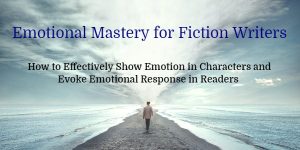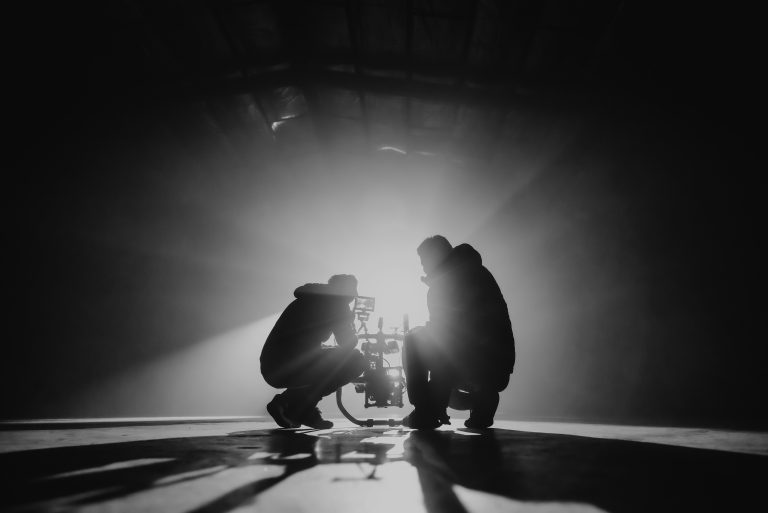Why the Last Lines of Your Scene Are Critical
Every scene has to have a purpose. I shouldn’t need to say that, but I’ve critiqued thousands of scenes that leave me scratching my head. There might be some interesting action or clever dialogue, but when I get to the end of the scene, I don’t know what the purpose is. Why did the author write this scene?
This is where scene endings come in. And why they are critical to understand and master. The last few lines of a scene are supposed to accomplish some very important things:
- Advance the story in a significant way (which can be a plot development, a character reveal, or any number of things)
- Shift the mood (of the character and/or the action taking place)
- Show a clear change in the character’s perspective (new understanding, change in opinion or feelings)
- Provide some sense of surprise or conclusiveness that signals the scene has ended
Without reading a whole scene, you can feel the shift, that “exclamation mark” at the end of it. The action may be ongoing, but this is where you feel/see the character change and/or its consequences. You should also be able to understand clearly what has changed, even if it’s subtle.
 Understanding the natural “action-reaction” sequence of human behavior is one of the most important tools a writer can stick in her toolbox. My online course Emotional Mastery for Fiction Writers has extensive teaching and examples on this topic, and if you haven’t learned about it, I encourage you to take time to do so.
Understanding the natural “action-reaction” sequence of human behavior is one of the most important tools a writer can stick in her toolbox. My online course Emotional Mastery for Fiction Writers has extensive teaching and examples on this topic, and if you haven’t learned about it, I encourage you to take time to do so.
Because I feel this is vital to learn, I have a free module you can watch (video online) that will explain this in detail to you. Yes, it’s free, and it’s about 40 minutes long. It may be the best 40 minutes you’ll spend on your writing chops this. year. All you need to do is go to my online course page, scroll down to the curriculum, and there you’ll see the “action-reaction” module. Click on the Preview button and hop on in (I hope you will enroll in the course and learn to become an emotional master in your fiction writing!)
Scenes can end on any of the stages of this cycle (action, reaction, process, decision, new action).
This doesn’t mean the action can’t continue into the next scene; that’s often done. But a scene shouldn’t just start to build to something and end partway, without anything shifting. You can watch any ol’ movie and note this same thing. How about the next time you watch a movie, challenge yourself to identify and answer (shouldn’t be hard) the following:
- What stage of the action-reaction cycle does this scene end on?
- How has the character’s perspective and/or mood shifted by the end of the scene, and how is that driven home in the last, say, twenty seconds?
- How has this story advanced by the end of the scene?
I’ll share below some scene endings (from some of the novel examples in the course), so you can see how the last lines drive home the purpose of their scene. Even without knowing anything about these novels, you’ll notice (I hope) that they feel like endings.
Action
(Redemption, Candice Fox)
“We’ve gotta go, Kel,” Jett said, coming close to us. I took a chance and reached up, patted Lilian’s warm head, tugged on her velvety soft ear, the way I used to when I was the only man who could hold her without upsetting her.
“See you next time, Boo-Boo,” I told her. “I love you.”
Lillian let go of Jett’s collar and put an arm out to me. Jett took a step back. I felt my teeth lock.
“Let her go,” Kelly told him. “She wants to go to him.”
Jett’s neck and jaw flushed red, a blossoming rage colour creeping up around his cheeks. He let Lillian lean out. I took her into my arms.
“Oh, my baby,” I found myself saying. I turned away from them. From confusing Kelly and her fury-filled boyfriend and the stares of the women. I walked to the window and held Lillian, trying hard not to squeeze the air out of her. “My baby. My baby. My baby.”
I stood there, faced away from them all, feeling her tiny arms around my neck, her chin on my shoulder. I rocked her. Smelled her. Cradled her head in my big hand and tried hard to hold on to the thrilling sensation that perhaps when I turned back around we wouldn’t be in a stale office in an ugly building, surrounded by hostile faces. That perhaps when I turned back around, I’d find I’d been standing at the living room window of my home the whole time, looking out on the yard, my happy baby in my arms, my loving wife at my back, alone.
“I love you, Lil,” I told my child. Her fingers were in my hair, playing with a curl at the nape of my neck.
“I love you, Daddy,” she said.
Reaction
(Project: Hail Mary, Andy Weir)
I try not to think about my impending doom. “So, let’s collect Astrophage. I have ideas for how we can get some samples. My equipment is very good at detecting trace amounts—”
“Wait.” He holds up a claw. “How much Astrophage you ship need for return to Earth, question?”
“Uh … just over two million kilograms,” I say.
“I can give,” he says.
I sit up in my chair. “What?!”
“I can give. I have extra. Can give that much and still have plenty for my return to Erid. You can have.”
My heart skips a beat. “Seriously?! It’s a lot of fuel! Let me repeat it: two million kilograms. Two times ten to the sixth power!”
“Yes. I have much Astrophage. My ship was more efficient than planned on trip here. You can have two million kilograms.”
I fall back into my seat. I pant. I almost hyperventilate. My eyes well up. “Oh my God …”
“No understand.”
I wipe away tears.
“You are okay, question?”
“Yes!” I sob. “Yes, I’m okay. Thank you! Thank you thank you!”
“I am happy. You no die. Let’s save planets!”
I break down, crying tears of joy. I’m going to live!
Processing
(The Crystal Scepter, my fantasy book)
He leaned over and kissed his brother’s clammy forehead, then, dismissing both the healer and his hot tonic, strode out of the cottage and into the bright day. A rush of sights and smells and sounds assaulted his mind, tingling his awareness with the prodigious proliferation of life and the bustle of activity in his kingdom. He let the sensation of peace and safety lull him, although it failed to offer any real comfort.
After locating his horse down by the creek, he splashed water on his face, the cold shock of it a welcome—and a reminder of a much-needed bath.
Ignoring the ache in his bones and the deeper one in his heart, he tightened the horse’s girth and swung up in the saddle, sensing the scepter behind the cantle, its power and influence pulsing in synchronous rhythm with the blood flowing in his veins.
The ghosts of Elysiel’s kings encircled him as he walked the destrier at a steady pace toward home under a serene and undisturbed blue sky, but they gave him little solace. All he wanted was to hold his daughters and soak in a tub until every last bit of grime and blood leached away. But he knew he would be met with attendants and questions and advisors and reports that would steal the rest of the day from him. And then the morrow would come, and he would ride north yet again to face Elysiel’s foes.
With a heavy sigh he reined his horse from the dirt lane onto the cobbled road that would lead him to the steps of the castle.
As he stared straight ahead, the awareness of every living thing in his kingdom thrumming in his mind, one thought kept pummeling him. He was now the only one left to stand in the gap between Vitra and his kingdom. He would do well to stay alive.
All of Elysiel depended upon it.
Decision
(Someone to Blame, my relational drama):
“Billy made me feel special, different,” Casey said. “I thought he really liked me.”
Matt fought the urge to blurt out, I told you so. I warned you not to talk to him. Instead, he said. “Casey, you have to tell me.” He waited until she stopped pacing and looked at him. “What did he do to you? Exactly. I need to know.”
He could see her mind working, deliberating what to say and what to conceal.
“Just this.” She gestured to her body, her appearance. “Isn’t that enough?”
Of course it was. More than enough.
She added, with desperation lacing her voice, “You won’t tell Mom, will you? She’ll freak out.” She added, “Please. Don’t tell anyone.”
“Of course not, baby.” He ached with the need to hold and comfort her, but she stood with her arms wrapped around herself, bundling into a tight, untouchable package.
Hard as he tried, he couldn’t get Casey to say more. He led her to the truck and opened the door for her, watching every move of her muscles, the way she winced as she got into the cab, the shaking of her hands in her lap as he drove.
Matt willed his face to relax, presenting an impassive and calm mask that belied the raging maelstrom underneath. When he pulled up to the house, he asked if she wanted company. He could make her a sandwich, draw her a bath. She shook her head and said she wanted to be alone. Her eyes still threw daggers, sharp ones. The fortress was still barricaded and unassailable. But, for now, that was to his advantage.
He forced himself to wait until Casey went into the house and locked the door behind her.
He waited a moment longer, hoping she wouldn’t notice his desperate need to hurry. He didn’t want her to know what he planned to do—which was nothing less than hunt down and beat Billy Thurber to a pulp.
Did you notice how the last few lines of each scene drove home the purpose of the scene, even if you had no idea what the plot was? Whether you end your scene with action, reaction, processing, or new decision, the last lines have to drive home that shift in the character or advance the plot in a significant way.
Why not go through your scenes that you’ve been working on and see if your last few lines measure up? If they don’t, it may be that you haven’t clearly established your character’s initial mood, mindset, and motivation. That’s important! For readers to tell that your character has changed in some way at the end of the scene, you have to contrast that to where they’re at when the scene begins.
There is so much more to scene writing and structure! That’s why I encourage you to enroll in my online courses at cslakin.teachable.com. The one that is going to teach you the depth and breadth of scene writing is 8 Weeks to Writing a Commercially Successful Novel. You will get a year’s worth of material to learn and study and master. All my courses are video instruction (lectures) with exercises, worksheets, sample scenes, bonus videos, handouts, and even movie clips to help you learn these critical techniques.
If you want to write fantastic fiction that readers will love, you need to master scene structure, and that means writing powerful and effective last lines of scenes!
Photo by Julia Kicova on Unsplash












CS,
One thought in terms of conflict development. To some degree, each scene opens with a hope of discovery of intel that could aid the character. However, the scene’s development reveals that intel is more complex. Maybe some element of the intel will emerge.
But right at the end, a new way to look at the intel will jump out and maybe even change the character’s course of action.
What do you think?
That is one way a scene can end with a shift, for sure.